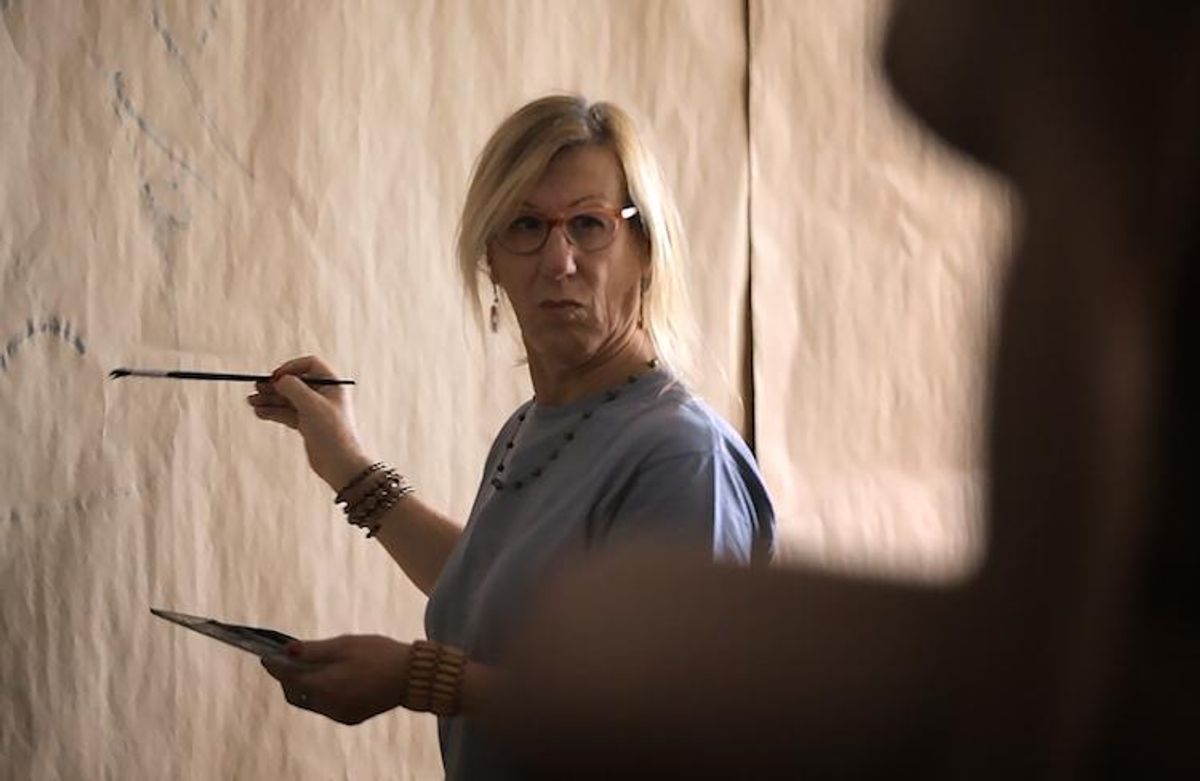With three adult children and a solid career, Laerte decided to come out as a transgender woman prior to her 60th birthday.
In Brazil, her country of birth, this transition is far from the reason why she first became famous: Laerte Coutinho is, most of all, the name of a nationally acclaimed cartoonist, author of countless comic strips and unusual characters popularized in newspapers and magazines since the '70s.
At first reluctant to the idea of being filmed and interviewed in her own house, she is now the subject of Netflix's first original documentary produced in Brazil. Premiering worldwide this week, Laerte-se builds a frank conversation between the artist and journalist Eliane Brum, one of the directors in the film, while visiting a few personal moments in Laerte's daily life--a pleasant afternoon spent next to her young grandson, for example.
The title is a neologism from her first name, used as a verb--"Laerte yourself," in free translation. This playful aspect perfectly matches with Brum's casual approach during the interviews, allowing the viewers to feel as if they're also sitting and chatting in Laerte's living room.
Animated scenes created from some of her most emblematic comic strips are used to illustrate the topics discussed in the film.
At the same time, they work as a subtle introduction of her transformation as an artist, too: while revisiting the questions she allowed herself to ask after she came out, it is possible to identify that some of her creative inspirations have gradually changed, as well as one of her comic characters, Hugo, who lives in a constant transition--just like his maker.
Laerte says that "an interesting idea is something that gives us sort of a "mental erection," summing up the provocative content of her drawings in general, which soon proved to be a great tool in the process of perceiving herself as transgender.
A few years earlier, in 2009, she first came out as a crossdresser, living a process of discovery with her body and female image.
This journey brought her to a different universe with new forms of expression, and some of her hesitations evolved into questions about whether or not to change her birth name, insert breast implants or consider the sex reassignment surgery.
Part of this questioning may sound delicate or undetermined in the doc, but it creates an exploration of what it means to be a woman. An investigation "of the woman that I can be," she adds.
Because despite the argument that Laerte doesn't seek one permanent identity, only "un-identities," her ability to change and question her own skin reveals a real character and proves a story that is undeniably worth watching.

























































































